
Exploring the Wild Wonders of Kibale National Park
Kibale National Park, located in western Uganda, is a lush tropical rainforest that spans over 795 square kilometers. Known as the 'Primate Capital of the World,' it is home to 13 species of primates, including the largest population of chimpanzees in Uganda. Visitors can enjoy guided chimpanzee tracking tours, where they can observe these fascinating creatures in their natural habitat. The park is not just about primates; it also boasts a rich diversity of flora and fauna. Birdwatchers will be thrilled by the presence of over 375 bird species, including the African Grey Parrot and the Great Blue Turaco. The verdant forest is also home to elephants, buffaloes, and various species of antelope, making it a paradise for wildlife enthusiasts. For those looking to immerse themselves in nature, Kibale offers several hiking trails that vary in difficulty and length. The Bigodi Wetlands Sanctuary, located adjacent to the park, provides an excellent opportunity for eco-tourism and community-based tourism. Here, visitors can learn about the local culture and support conservation efforts while enjoying the serene beauty of the wetlands.
Local tips in Kibale National Park
- Book your chimpanzee tracking permit in advance as spots are limited and fill up quickly.
- Wear comfortable, lightweight clothing and sturdy hiking boots for exploring the park.
- Carry insect repellent and sunscreen to protect yourself from insect bites and sun exposure.
- Hire a local guide for the best wildlife spotting opportunities and to learn about the park's ecology.
- Visit during the dry seasons (December to February and June to September) for the best wildlife viewing experience.
Exploring the Wild Wonders of Kibale National Park
Kibale National Park, located in western Uganda, is a lush tropical rainforest that spans over 795 square kilometers. Known as the 'Primate Capital of the World,' it is home to 13 species of primates, including the largest population of chimpanzees in Uganda. Visitors can enjoy guided chimpanzee tracking tours, where they can observe these fascinating creatures in their natural habitat. The park is not just about primates; it also boasts a rich diversity of flora and fauna. Birdwatchers will be thrilled by the presence of over 375 bird species, including the African Grey Parrot and the Great Blue Turaco. The verdant forest is also home to elephants, buffaloes, and various species of antelope, making it a paradise for wildlife enthusiasts. For those looking to immerse themselves in nature, Kibale offers several hiking trails that vary in difficulty and length. The Bigodi Wetlands Sanctuary, located adjacent to the park, provides an excellent opportunity for eco-tourism and community-based tourism. Here, visitors can learn about the local culture and support conservation efforts while enjoying the serene beauty of the wetlands.
When is the best time to go to Kibale National Park?
Iconic landmarks you can’t miss
Kibale Forest Camp
Discover the magic of Kibale Forest Camp, a cozy retreat amidst Uganda's stunning biodiversity and vibrant wildlife experiences.
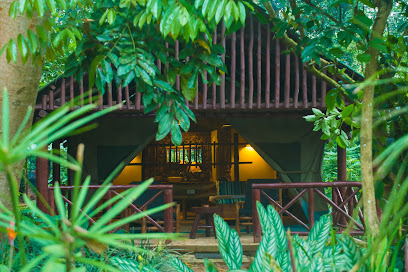
Primate Lodge
Discover the heart of Uganda's wildlife at Primate Lodge, your ideal retreat in the lush Kibale rainforest.

Chimpundu Lodge | Kibale Forest
Experience the beauty of Kibale Forest at Chimpundu Lodge, the perfect blend of comfort and adventure surrounded by nature's wonders.
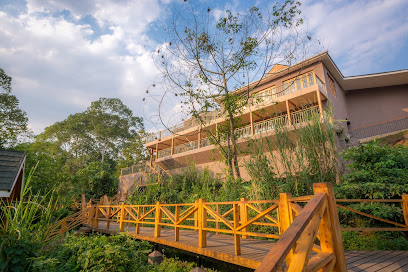
KAFRED
Experience the tranquil beauty of KAFRED Park in Kamwenge, where nature and leisure combine for an unforgettable adventure.
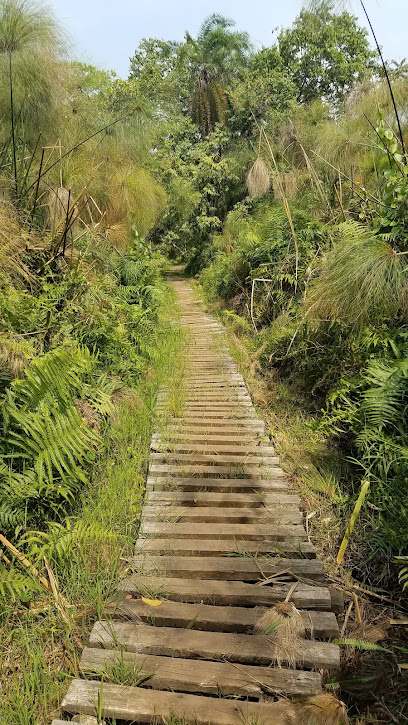
Hornbill cave Kibale camp
Experience the tranquility and natural beauty of Hornbill Cave Kibale Camp, your gateway to the wonders of Uganda's wilderness.

Kanyanchu Visitor Center
Explore the biodiversity of Kibale National Park at Kanyanchu Visitor Center - your gateway to unforgettable wildlife experiences.
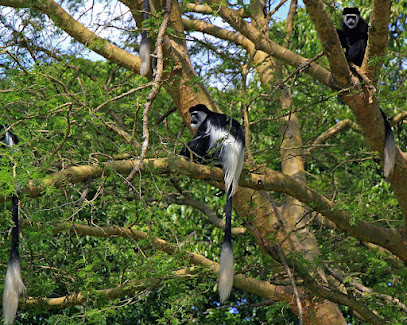
Uganda chimpanzee safaris
Discover the lush Kibale National Park on unforgettable chimpanzee safaris in Uganda, where adventure and conservation meet.
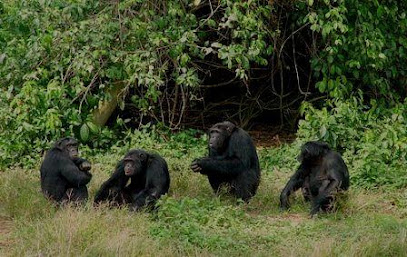
Kibale forest
Discover the stunning Kibale Forest, a UNESCO World Heritage Site, home to diverse wildlife and unforgettable chimpanzee tracking adventures.

Unmissable attractions to see
Murchison Falls National Park
Experience the breathtaking beauty and wildlife of Murchison Falls National Park, Uganda's largest national park, a true African adventure.
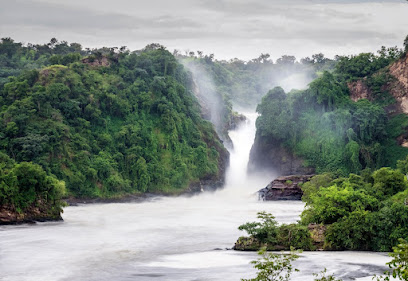
Queen Elizabeth National Park
Explore the beauty and biodiversity of Queen Elizabeth National Park, a premier destination for wildlife enthusiasts and adventure seekers in Uganda.
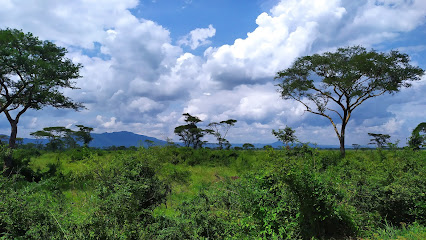
Amabere Caves
Discover the captivating beauty and rich folklore of Amabere Caves, a stunning nature preserve near Fort Portal, Uganda.
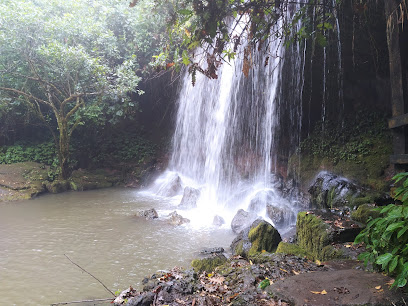
The Female Hot Spring
Experience the rejuvenating power of nature at The Female Hot Spring in Uganda, a serene refuge offering therapeutic mineral-rich waters and stunning landscapes.
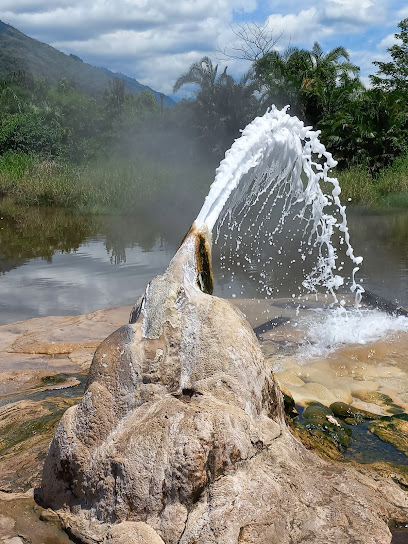
Tooro Botanical Gardens
Experience the lush beauty and tranquility of Tooro Botanical Gardens in Fort Portal, a nature lover's paradise filled with diverse plant species.
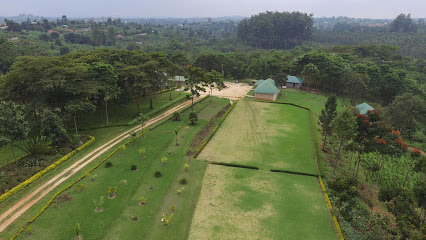
Main Gate, UWA, Kasenyi Uganda
Explore the breathtaking wildlife at Kasenyi, Uganda's gateway to unparalleled adventures amidst nature's wonders.
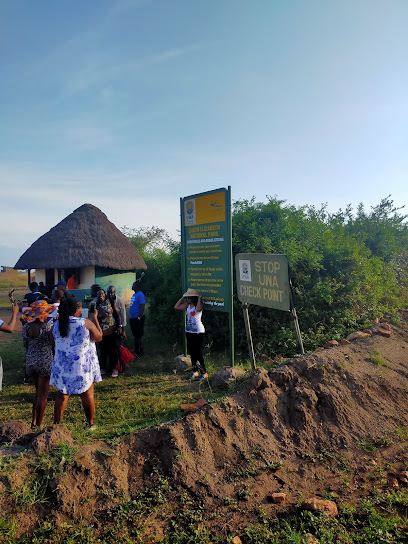
KIWA Heritage
Explore KIWA Heritage: Uganda's hidden gem of hot springs, vibrant rivers, and breathtaking natural landscapes, perfect for nature lovers and adventure seekers.
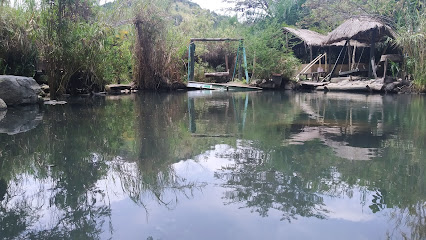
Sempaya Female hot springs
Experience the healing powers of Sempaya Female Hot Springs in Uganda, a natural wonder surrounded by stunning landscapes and rich wildlife.
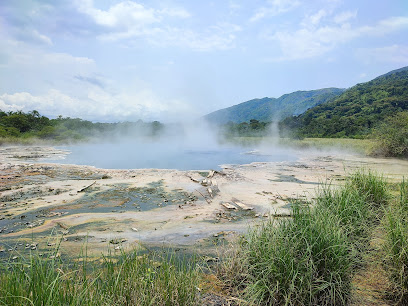
Semuliki National Park Uganda
Explore Semuliki National Park, Uganda's hidden gem of biodiversity, stunning landscapes, and unique hot springs—perfect for nature lovers and adventure seekers.
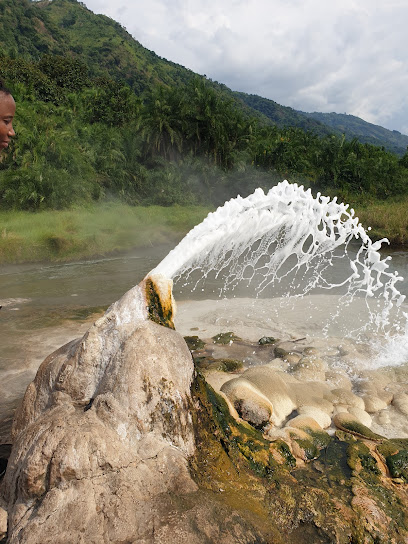
Crater lake view point
Experience the awe-inspiring beauty of Crater Lake View Point, a stunning natural attraction offering breathtaking landscapes and vibrant colors.
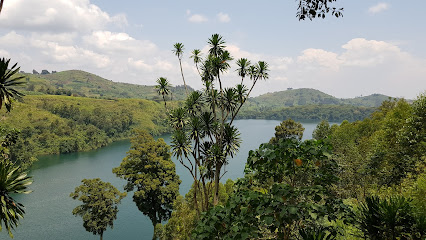
Kyeganywa Hill
Experience the serene beauty and stunning views of Kyeganywa Hill near Fort Portal, a perfect escape for nature lovers and adventure seekers.
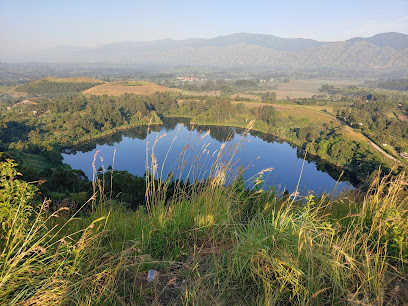
Queen Elizabeth N.P. Kyansama Viewpoint
Explore the stunning vistas and wildlife of Queen Elizabeth National Park from the breathtaking Kyansama Viewpoint, a top destination for nature lovers.
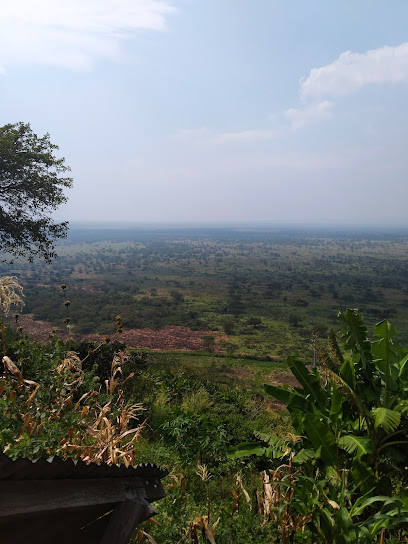
Mahoma falls
Experience the beauty of Mahoma Falls, a serene park in Kasenda, Uganda, with breathtaking waterfalls and lush nature trails perfect for adventure seekers.
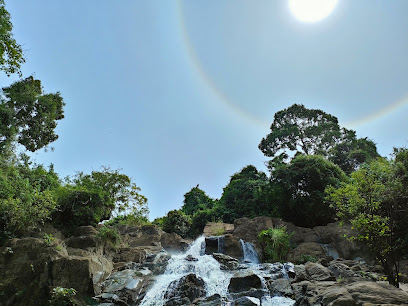
KYIRIBA KYATHUMBA HOT SPRING-KIBBENGE
Experience the soothing embrace of Kyiriba Kyathumba Hot Spring in Kasese, Uganda - a natural retreat for relaxation and rejuvenation.
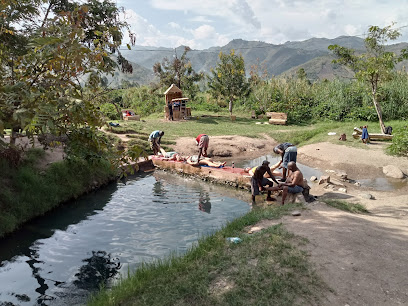
The Male Hot Spring
Discover the therapeutic bliss of The Male Hot Spring, a natural oasis in Uganda that rejuvenates both body and spirit amidst breathtaking landscapes.
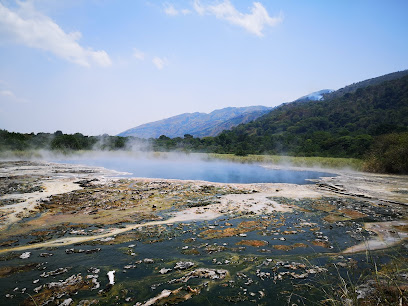
Essential places to dine
Gardens Restaurant, Cafè, Art Gallery
Discover exquisite dining amidst art and nature at Gardens Restaurant in Fort Portal – where culinary excellence meets creative inspiration.
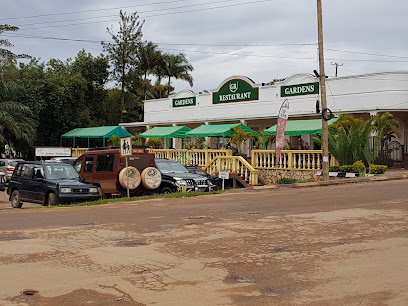
Dutchess Hotel and Restaurant
Discover comfort and culinary excellence at Dutchess Hotel & Restaurant in Fort Portal - your gateway to Uganda's natural beauty.

La Cabana Restaurant
Experience exquisite dining at La Cabana Restaurant in Kampala - where local flavors meet international cuisine in a cozy ambiance.
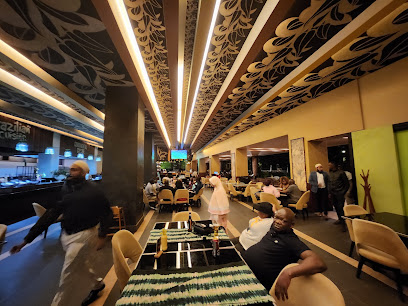
Kyaninga Lodge
Discover unparalleled luxury and breathtaking views at Kyaninga Lodge - your perfect Ugandan getaway amidst stunning landscapes.
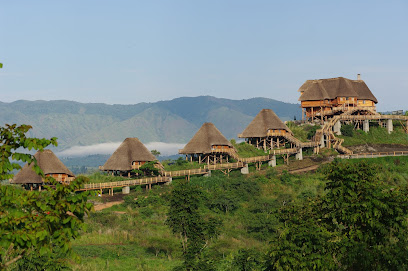
Delhi Garden Restaurant & Hotel
Experience delightful dining and cozy accommodation at Delhi Garden Restaurant & Hotel in Fort Portal - where comfort meets culinary diversity.

Cafe de forte
Experience delightful dining at Café de Forte in Fort Portal - where local flavors meet international cuisine in a cozy atmosphere.
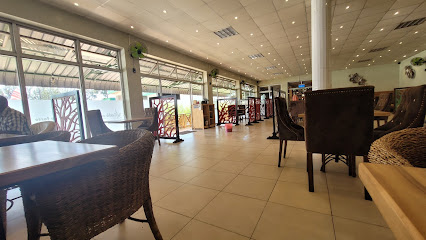
Isunga Lodge
Discover comfort and adventure at Isunga Lodge in Kibale National Park – where nature meets luxury.
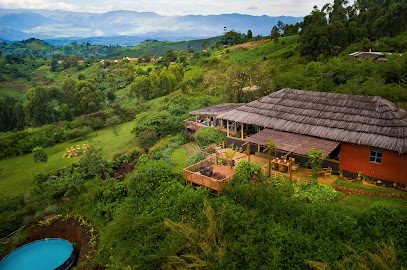
Kibale Forest Camp
Discover tranquility at Kibale Forest Camp - where adventure meets comfort amidst Uganda's stunning wilderness.
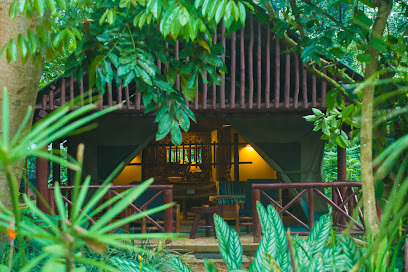
Chimpanzee Forest Lodge Ltd
Discover an eco-friendly haven at Chimpanzee Forest Lodge in Isunga - a gateway to unforgettable wildlife experiences amidst breathtaking landscapes.

Kalitusi Nature Resort
Experience serene getaways at Kalitusi Nature Resort in Fort Portal; where comfort meets nature's beauty in Uganda.

Turaco Treetops
Experience unparalleled comfort at Turaco Treetops Lodge, nestled in Kibale National Park—your gateway to Uganda's rich wildlife and stunning landscapes.

Crater Safari Lodge
Experience luxury and nature at Crater Safari Lodge in Kibale Forest National Park – a perfect retreat for adventure seekers and wildlife enthusiasts.

Primate Lodge
Discover comfort and adventure at Primate Lodge, your gateway to exploring Kibale National Park's incredible wildlife.

PAPAYA LAKE LODGE
Experience serenity and adventure at Papaya Lake Lodge in Fort Portal, Uganda - your gateway to nature's wonders.
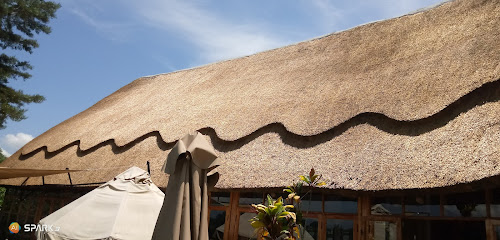
Kibale Forest Lodge
Experience nature's beauty at Kibale Forest Lodge – your gateway to Uganda's lush rainforests and vibrant wildlife.
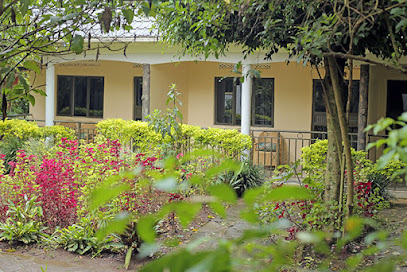
Markets, malls and hidden boutiques
Kabundiare Market
Discover the vibrant Kabundiare Market in Fort Portal, Uganda, where local culture, fresh produce, and unique handicrafts await every traveler.
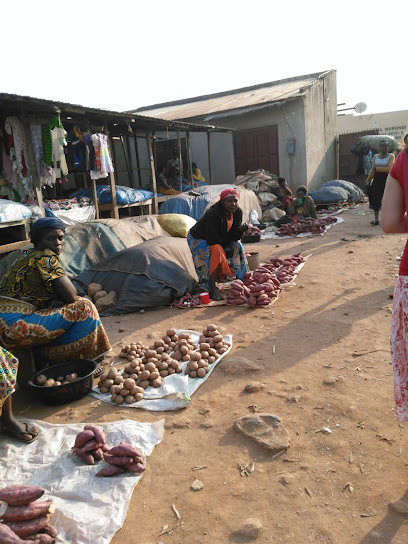
Kibale National Park Tourist Information
Discover the enchanting Kibale National Park, home to vibrant wildlife, lush landscapes, and thrilling primate encounters in Uganda's tropical paradise.
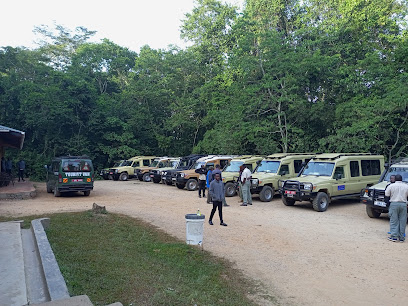
A&K Botique
Explore A&K Boutique in Fort Portal for unique Ugandan fashion and stylish clothing that embodies the spirit of local craftsmanship and contemporary trends.

Kahungye Trading Center
Experience the local charm and vibrant culture at Kahungye Trading Center, a unique Ugandan shopping destination that offers a taste of authentic flavors and crafts.
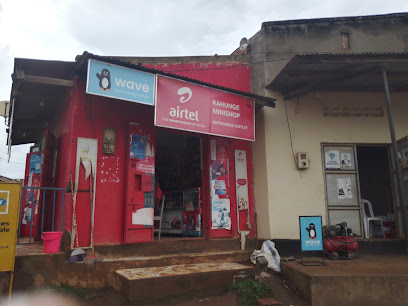
Cafe Kibale
Discover the perfect blend of nature and flavor at Cafe Kibale, your ultimate coffee destination in Uganda's scenic Kibale region.
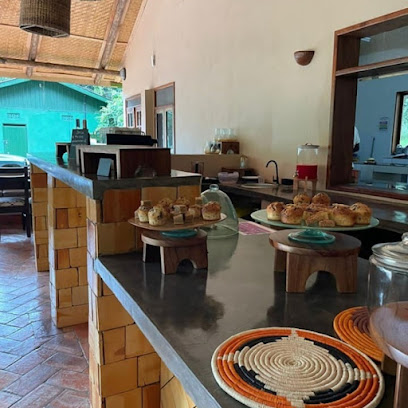
Kelele Craft Shop II Social Center
Discover authentic Ugandan craftsmanship at Kelele Craft Shop II in Kasenda, where every handmade piece tells a unique story.
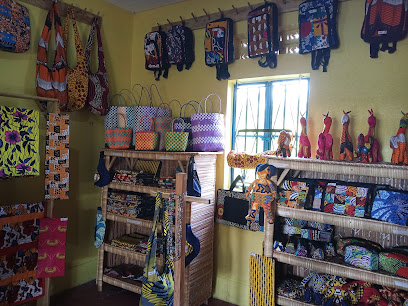
Mountains of The Moon Hotel Craft Shop
Explore the Mountains of The Moon Hotel Craft Shop for unique handmade treasures and a taste of Uganda's rich cultural heritage.
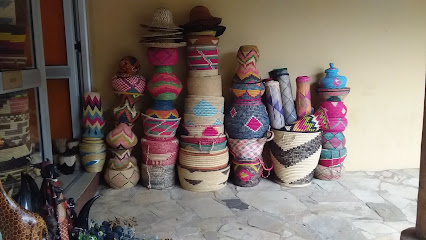
Kelele Craft Shop
Discover Kelele Craft Shop: A vibrant hub of Ugandan artisan crafts, perfect for unique souvenirs and cultural experiences.
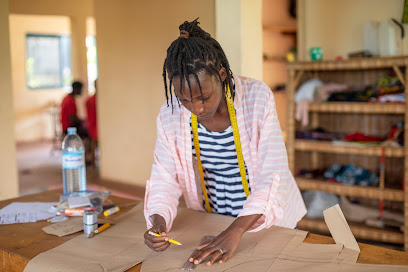
HAMIS AND SON'S SHOP
Explore local crafts and everyday essentials at Hamis and Son's Shop, a charming general store in Fort Portal, Uganda.
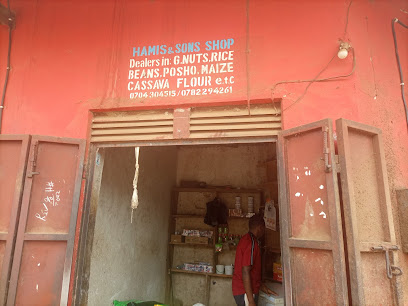
Mukyepatiko trading center
Discover the vibrant Mukyepatiko Trading Center in Fort Portal, a local marketplace rich in culture, crafts, and fresh produce.

Rwebijoka
Discover the charm of Fort Portal at Rwebijoka, your go-to store for authentic Ugandan crafts and local treasures.

Premium Gift Center Fort Portal City
Explore the Premium Gift Center in Fort Portal City for unique local crafts and souvenirs that embody the spirit of Uganda.
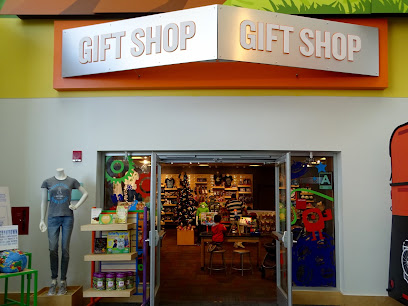
Kisumbi B shop
Explore the vibrant culture of Uganda at Kisumbi B Shop, where local crafts and unique souvenirs await your discovery in Fort Portal.
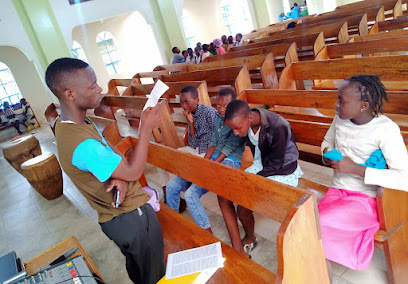
Banura General store Ltd
Explore Banura General Store Ltd in Fort Portal for local goods and an authentic taste of Ugandan community life.
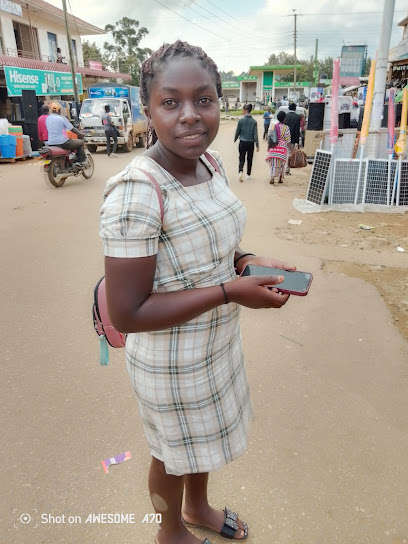
Kirinju Boutique and shop
Discover Kirinju Boutique: Rugombe's hidden gem for unique clothing and cultural treasures that celebrate Ugandan craftsmanship.
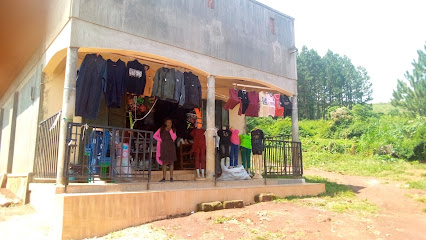
Essential bars & hidden hideouts
Pavilion Bar & Grill
Experience the vibrant flavors of Uganda at Pavilion Bar & Grill in Fort Portal, a perfect blend of local and international cuisine.
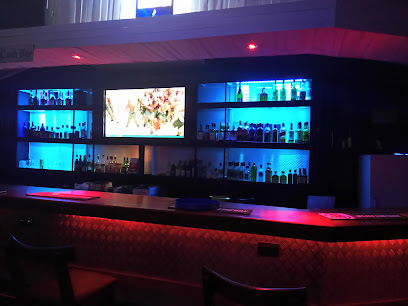
Club Africana
Discover the vibrant nightlife of Fort Portal at Club Africana, where friendly vibes and great drinks await you.
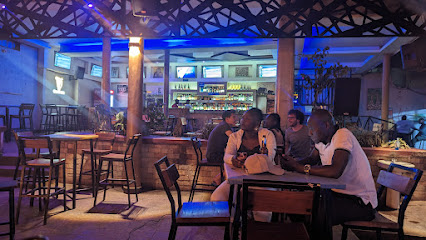
Afrikana Sports Bar
Experience the vibrant atmosphere and delicious grilled dishes at Afrikana Sports Bar, the perfect spot for food and fun in Fort Portal.
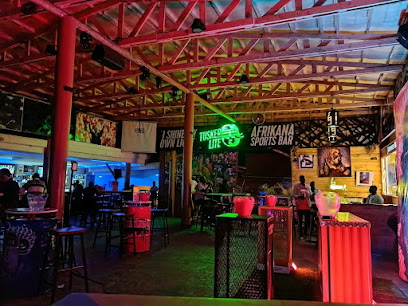
Forest Bar
Experience the vibrant charm of Forest Bar in Fort Portal, where refreshing drinks and lively ambiance meet the beauty of Uganda's landscapes.
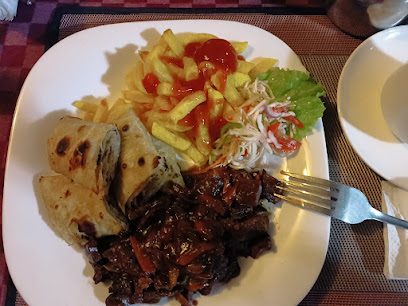
The Bee Hive Bar & Bistro
Discover the flavors of Uganda at The Bee Hive Bar & Bistro in Kibale, an enchanting spot for food lovers and adventurers alike.
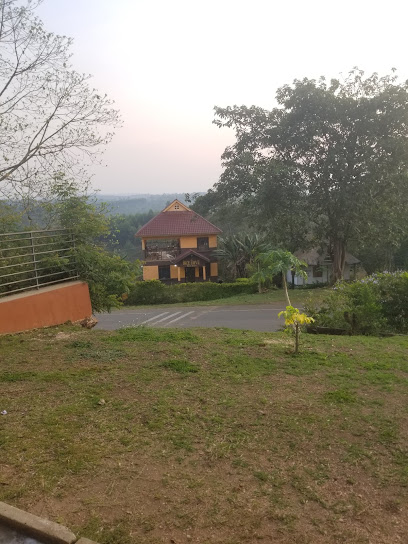
Basaliza Pub, Kitumba
Experience the vibrant culture and lively atmosphere at Basaliza Pub in Fort Portal, a perfect spot for tourists seeking relaxation and local charm.

Starters
Experience the vibrant nightlife and local flavor at Starters, the premier bar in Fort Portal, Uganda, perfect for tourists and locals alike.
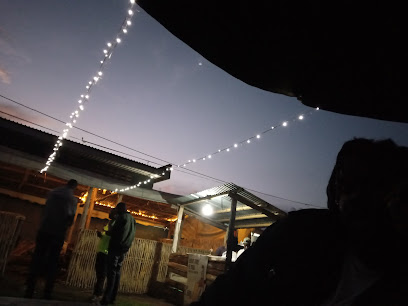
Delight Bar and Lounge
Discover the lively and inviting atmosphere of Delight Bar and Lounge, perfect for relaxation and socializing in the heart of the city.
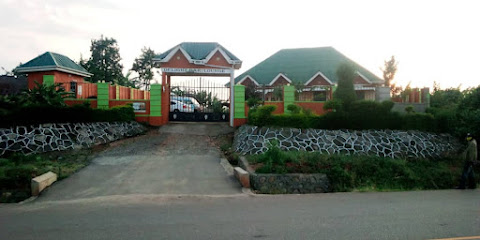
Afreka Bar & Restaurant
Experience authentic Ugandan cuisine at Afreka Bar & Restaurant in Murukunyu, where local flavors and vibrant atmosphere meet.
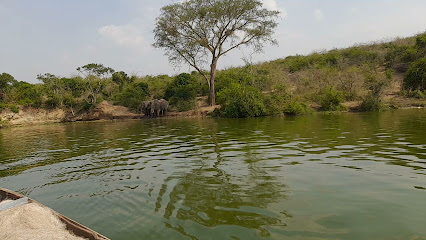
Fb bar & lodges
Discover the lively atmosphere of Fb Bar & Lodges in Kyendangara, where local culture meets vibrant nightlife in a friendly setting.

Jimx Bar & Grill Burungu
Experience the lively atmosphere and delicious cuisine at Jimx Bar & Grill Burungu, a local favorite in Fort Portal.
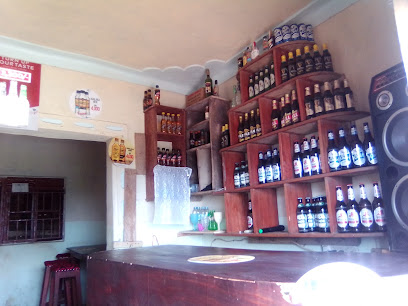
CAVE BAR WEST
Experience the enchanting atmosphere of Cave Bar West in Rubona, where local culture meets unique cave-like charm.
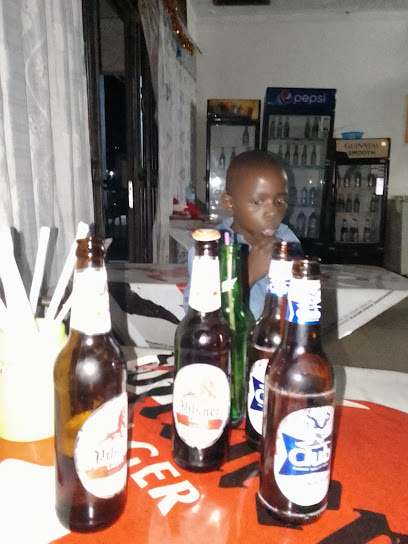
FAT BOYZ BAR and LODGE
Discover vibrant local culture and unwind at FAT BOYZ BAR and LODGE, Fort Portal's lively hub for tourists and locals alike.
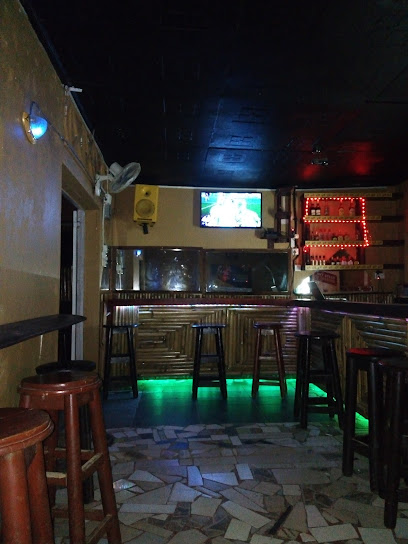
K-GARDENS BAR AND RESTAURANT
Experience the vibrant atmosphere and local flavors at K-Gardens Bar and Restaurant in Fort Portal, your perfect getaway in Uganda.

Local Phrases about Kibale National Park
-
- HelloKi kati
[key kah-tee] - GoodbyeSiri wano
[see-ree wah-noh] - YesEego
[ee-go] - NoNeda
[neh-dah] - Please/You're welcomeMwebale nyo
[mweh-bah-leh nyoh] - Thank youWebale
[weh-bah-leh] - Excuse me/SorryNsonyiwa
[nsoh-nee-wah] - How are you?Oli otya?
[oh-lee oh-tyah] - Fine. And you?Gyendi. Wano?
[gyen-dee. wah-noh] - Do you speak English?Omanyilira Olungereza?
[oh-mahn-yee-lee-rah oh-loon-geh-reh-zah] - I don't understandSings awo
[seen-gsah ah-woh]
- HelloKi kati
-
- I'd like to see the menu, pleaseNkola kutandika menyu, kubanga
[en-koh-lah koo-tahn-dee-kah men-yoo, koo-bahn-gah] - I don't eat meatSili wuunye
[see-lee woo-nyeh] - Cheers!Mirembe
[mee-rem-beh] - I would like to pay, pleaseNkola okwetegereza, kubanga
[en-koh-lah oh-kweh-teh-geh-reh-zah, koo-bahn-gah]
- I'd like to see the menu, pleaseNkola kutandika menyu, kubanga
-
- Help!Tusasula!
[too-sah-soo-lah] - Go away!Genda wano!
[gen-dah wah-noh] - Call the Police!Kubaayo poliisi!
[koo-bah-yoh poh-lee-see] - Call a doctor!Kubaayo daktari!
[koo-bah-yoh dahk-tah-ree] - I'm lostNkojja
[en-koh-jah] - I'm illNkwekula
[en-kweh-koo-lah]
- Help!Tusasula!
-
- I'd like to buy...Nkola okuba...
[en-koh-lah oh-koo-bah...] - I'm just lookingNkola kusoma
[en-koh-lah koo-soh-mah] - How much is it?Birungi ki?
[bee-roon-gee kee?] - That's too expensiveEkyo kikutya
[eh-kyo kee-koo-tyah] - Can you lower the price?Leeta emikono gyabwe?
[leh-tah eh-mee-koh-noh gyahb-weh]
- I'd like to buy...Nkola okuba...
-
- What time is it?Saa ngapi?
[sah nah-gah-pee] - It's one o'clockSaa limu
[sah lee-moo] - Half past (10)Saa kasatu
[sah kah-sah-too] - MorningEnnyanja
[en-nyahn-jah] - AfternoonEkitiibwa
[eh-kee-tee-boh] - EveningEkitaayi
[eh-kee-tah-yee] - YesterdayEkyo ky'eno
[eh-kyo kee-eh-noh] - TodayEno
[eh-noh] - TomorrowKino
[kee-noh] - 1Mu
[moo] - 2Biri
[bee-ree] - 3Sato
[sah-toh] - 4Anan
[ah-nahn] - 5Taano
[tah-noh] - 6Mukaaga
[moo-kah-gah] - 7Musanvu
[moo-sahn-voo] - 8Munaana
[moo-nah-nah] - 9Mwenda
[mwehn-dah] - 10Kumi
[koo-mee]
- What time is it?Saa ngapi?
-
- Where's a/the...?Wano wa...?
[wah-noh wah...?] - What's the address?Ani agambye?
[ah-nee ah-gahm-beh?] - Can you show me (on the map)?Leka kwenkyusa (ku mapu)?
[leh-kah kwehn-choo-sah (koo mah-poo)?] - When's the next (bus)?Busi eyo y'asangiddwa ki?
[boo-see eh-yo yah-sahn-gee-ddwah kee?] - A ticket (to ....)Tikiti (ku ....)
[tee-kee-tee (koo ....)]
- Where's a/the...?Wano wa...?
History of Kibale National Park
-
Kibale National Park, located in western Uganda, is an area rich in biodiversity and home to a variety of ecosystems. The park was established in 1932 as a forest reserve to protect the region's unique flora and fauna. It wasn't until 1993, however, that Kibale was officially designated as a national park, safeguarding its diverse habitats which range from tropical rainforest to savanna and grassland.
-
Kibale National Park is surrounded by indigenous communities, notably the Batooro and Bakiga people. These communities have a long history of living in harmony with the forest, relying on it for resources such as medicinal plants, food, and materials for building. Traditional beliefs and practices are deeply intertwined with the natural environment, and local mythologies often feature the forest and its inhabitants.
-
Over the years, Kibale National Park has faced challenges from deforestation, agricultural encroachment, and human-wildlife conflict. Various conservation initiatives have been undertaken to combat these issues, including reforestation projects, community education programs, and the establishment of wildlife corridors. International organizations, along with the Uganda Wildlife Authority, have played a crucial role in these conservation efforts.
-
Kibale National Park is renowned for its chimpanzee population, one of the highest densities in Africa. The park has become a leading center for primate research, attracting scientists from around the world. Chimpanzee tracking has also become a significant tourist attraction, offering visitors the chance to observe these primates in their natural habitat. This form of eco-tourism has provided vital funding for ongoing conservation projects.
-
Within and around Kibale National Park there are several cultural heritage sites that hold historical and spiritual significance for local communities. These include ancient shrines, sacred groves, and traditional homesteads. Efforts have been made to preserve these sites and integrate them into tourism activities, allowing visitors to gain a deeper understanding of the cultural dimensions of the area.
-
In recent decades, the area surrounding Kibale National Park has seen increased development, including the construction of roads, schools, and health centers. While these developments have brought benefits to local communities, they have also posed threats to the park's ecosystem. Balancing development and conservation remains a key challenge for the future of Kibale National Park.
Kibale National Park Essentials
-
Kibale National Park is located in western Uganda, approximately 320 kilometers from Kampala, the capital city. The nearest international airport is Entebbe International Airport. From Entebbe, you can take a domestic flight to Kasese, which is about 1.5 hours drive to the park. Alternatively, you can travel by road from Kampala, which takes about 5-6 hours. Private cars, taxis, and buses are available for this journey. The road conditions are generally good, especially on the main highways.
-
Within Kibale National Park, transportation options include guided tours, private vehicles, and rental cars. Many visitors prefer guided tours for convenience and expert knowledge. If you choose to drive, make sure your vehicle is suitable for off-road conditions, especially during the rainy season when some roads can be challenging. Boda-bodas (motorcycle taxis) are also available for short distances but should be used with caution and safety gear.
-
The official currency in Uganda is the Ugandan Shilling (UGX). While some lodges and higher-end establishments may accept credit cards, it is advisable to carry cash for smaller transactions and tips. ATMs are available in major towns, but it is best to withdraw enough cash before heading into the park. Foreign currency can be exchanged at banks or authorized forex bureaus in Kampala and larger towns.
-
Kibale National Park is generally safe for tourists, but standard precautions should be taken. Avoid walking alone at night and always lock your accommodation. Petty theft can occur, so keep an eye on your belongings. While there are no specific high-crime areas targeting tourists within the park, it is always best to stay alert and follow the advice of your guides and local authorities.
-
In case of emergency, contact the Uganda Wildlife Authority (UWA) rangers or the nearest lodge staff. They are trained to handle emergencies and can assist you. The emergency number in Uganda is 999 or 112. It is also advisable to have comprehensive travel insurance that covers medical emergencies and evacuation. For health issues, the nearest medical facilities are located in Fort Portal, about an hour's drive from the park.
-
Fashion: Do wear comfortable, breathable clothing and sturdy walking shoes. Avoid bright colors that may disturb wildlife. Religion: Do respect local customs and traditions. Dress modestly when visiting local communities. Public Transport: Do use registered and reputable transportation providers. Don't use unmarked taxis. Greetings: Do greet people with a handshake and a smile. Learn a few phrases in the local language, Rutooro, to show respect. Eating & Drinking: Do try local dishes, but make sure food is well-cooked and water is bottled. Don't drink tap water.
-
To experience Kibale National Park like a local, engage with the local communities. Visit the Bigodi Wetlands Sanctuary, where you can learn about local conservation efforts and enjoy birdwatching. Participate in a cultural tour to understand the traditions and way of life of the Batooro people. Don't miss the chance to taste local delicacies such as 'matoke' (cooked bananas) and 'rolex' (a popular street food consisting of an omelette rolled in a chapati).
Nearby Cities to Kibale National Park
-
Things To Do in Mbarara
-
Things To Do in Masaka
-
Things To Do in Nyagatare
-
Things To Do in Ruhengeri
-
Things To Do in Entebbe
-
Things To Do in Kampala
-
Things To Do in Bukoba
-
Things To Do in Rubavu
-
Things To Do in Kigali
-
Things To Do in Gisenyi
-
Things To Do in Muhanga
-
Things To Do in Arua
-
Things To Do in Nyamata
-
Things To Do in Kibuye
-
Things To Do in Karongi








